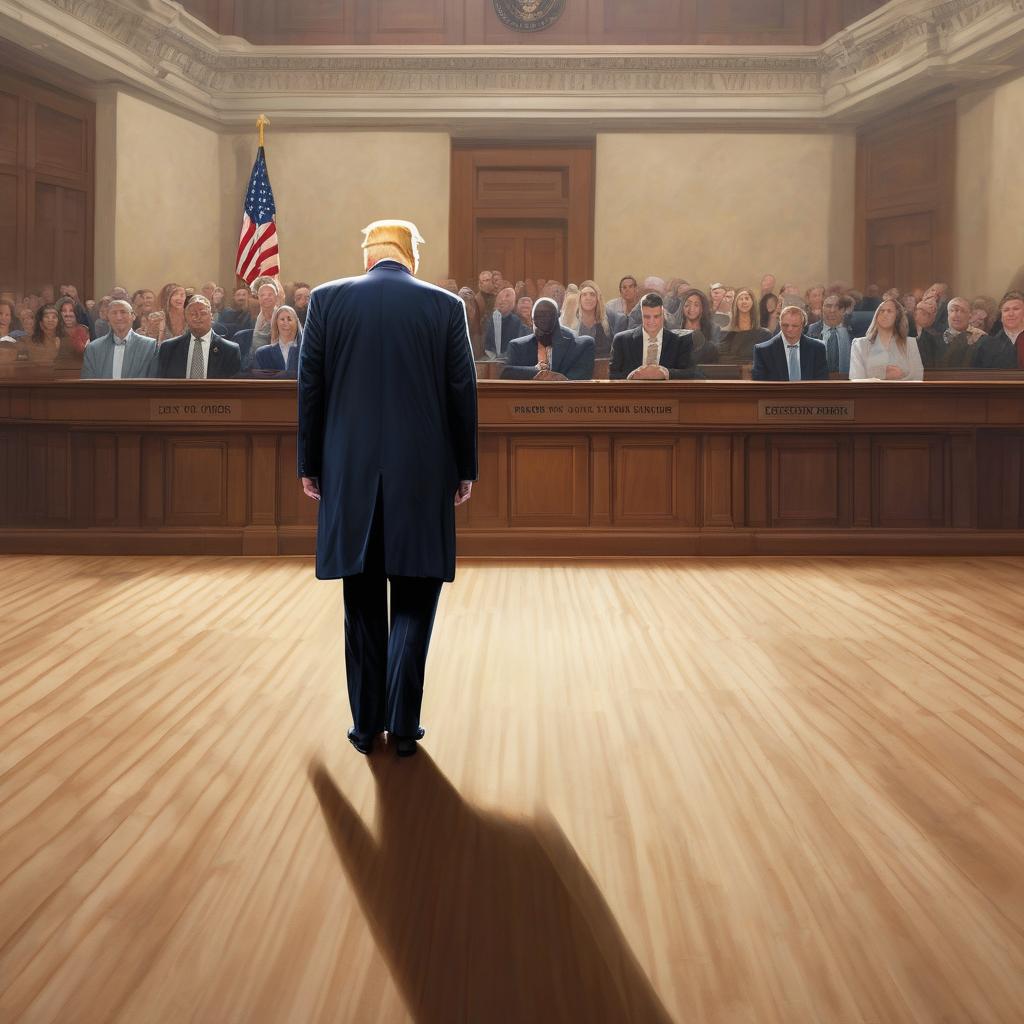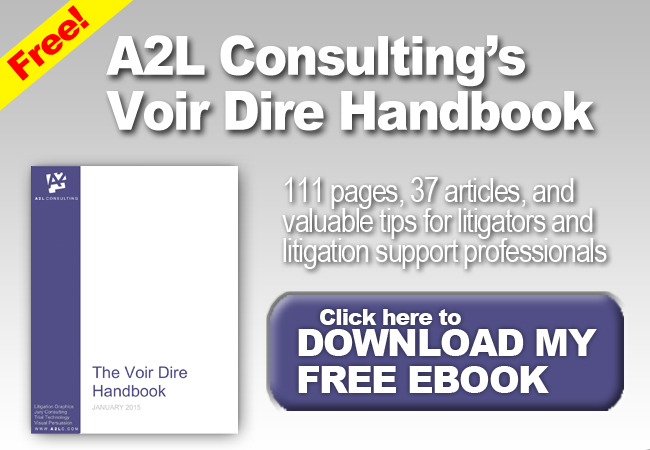The Trump trial in New York has been discussed for months. With the jury selection process well underway, several things have gone wrong that could potentially impact the trial's outcome. In this blog post, I'll discuss seven of these issues.
1. Jury members with biases: Finding unbiased and fair jurors is one of the most significant challenges during jury selection. In the case of the Trump trial, potential jurors may have already formed an opinion about the defendant due to the extensive media coverage of the trial. The political climate surrounding the case could also lead to jurors having predetermined notions about the defendant, which could impact their ability to be impartial during the trial. As of this writing, two potential jurors who were already selected have been removed. 12 jurors have already been selected, with Friday dedicated to selecting alternate jurors in case any of the chosen jurors are dismissed. See Font Matters - A Trial Graphics Consultant's Trick to Overcome Bias.
2. Jurors who have already formed an opinion: During the pretrial phase, so much media coverage about the case could influence potential jurors. If potential jurors have already made up their minds about the case, it could impact their ability to remain impartial during the trial. This could lead to jurors not being open to hearing the evidence presented during the trial, which could impact the outcome. For those jurors, the trial would be one extensive exercise in confirmation bias.
3. Jurors have been doxxed: Doxxing, the act of revealing personal information about individuals online, has already proven to be a significant issue during the jury selection process for the Trump trial. This unethical practice can make potential jurors feel exposed and vulnerable, impacting their ability to participate in the trial impartially. With the constant threat of personal information being leaked, jurors may feel pressured or intimidated, affecting their decision-making process. It is crucial for the court to address and prevent any instances of doxxing to ensure a fair and unbiased trial for all parties involved.
4. Politicization of the jury selection process: The political climate surrounding the case could politicize the jury selection process. This could lead to a jury that is not representative of the community. Instead, the jury could be politically motivated, which could impact the outcome of the trial. It's crucial to ensure that the jury selection process is done fairly, focusing on finding impartial jurors who understand or are open to understanding the law.
5. Jury tampering: Jury tampering poses a significant threat in high-profile cases, encompassing tactics like threats, bribery, intimidation, and coercion. If jurors fall victim to tampering, it could heavily sway the trial's outcome. Safeguarding jurors and upholding a fair and impartial trial process are paramount. Already, one juror has been approached by peers and community members, feeling intimidated and unable to make an unbiased decision. She was excused. I'm betting that she won't be the last juror identified publicly.
6. Six alternates may not be enough: Having only six alternate jurors in a high-profile trial with so many potential issues is a cause for concern. The risk of juror bias, preconceived opinions, and external influences is incredibly high in a case as complex and politically charged as the Trump trial. With the potential for jurors to be swayed by outside pressures or to feel intimidated, having a limited number of alternates may not be enough to ensure a fair and impartial trial for a 12-person jury. The importance of having a sufficient number of alternates to step in if any juror is unable to continue due to bias, intimidation, or any other reason cannot be overstated. It is crucial for the court to consider expanding the pool of alternate jurors to safeguard the integrity of the trial and uphold the principles of justice.
7. Jurors' personal beliefs conflicting with the law: Some jurors may hold beliefs that the 2020 election was manipulated, while others may speculate about Joe Biden's involvement in the trial. Additionally, jurors could perceive Trump was extorted in 2016 close to the election. These conflicting personal beliefs could potentially cloud their judgment and understanding of the legal proceedings, leading to biased decision-making during the trial. It is crucial for the court to address and mitigate any instances where jurors' personal beliefs conflict with the law to ensure a fair and impartial trial for all parties involved.
I think Donald Trump is likely to be convicted of something. I don't think he will spend much, if any, time in jail.
- 5 Questions to Ask in Voir Dire . . . Always
- 5 Voir Dire Questions to Avoid
- Jury Research and Mock Trials During Presidential Elections
- Font Matters - A Trial Graphics Consultant's Trick to Overcome Bias
- 7 Tips to Take “Dire” out of Voir Dire
- 10 Things Every Mock Jury Ever Has Said
- A Surprising Lesson From Voir Dire
- 10 Ways to Lose Voir Dire
- 5 Ways That a Mock Trial Informs and Shapes Voir Dire Questions
- Like It or Not: Likability Counts for Credibility in the Courtroom
- 10 Things Every Mock Jury Ever Has Said
- A Jury Consultant Is Called for Jury Duty
- One Voir Dire Must Do and One Voir Dire Must Never Do
- The Voir Dire Handbook | Free Download | A2L Consulting
- Jury Selection and Voir Dire: Don't Ask, Don't Know
- 15 Things Everyone Should Know About Jury Selection
- Why Do I Need A Mock Trial If There Is No Real Voir Dire?
- Jury Questionnaire by the Numbers
- 10 Ways to Spot Your Jury Foreman
- 5 Things Every Jury Needs From You
- Jury Selection & Jury Consultants: Three Strikes, You're Out!
- 10 Signs of a Good Jury Questionnaire
- 13 Revolutionary Changes in Jury Consulting & Trial Consulting
- Is Hiring a Jury Consultant Really Worth It?
- 12 Insider Tips for Choosing a Jury Consultant
- Do I Need a Local Jury Consultant? Maybe. Here are 7 Considerations.
- I’m Right, Right? 5 Ways to Manage Juror Bias
- Jury Selection Experts . . . True or False?
- Who Are The Highest-Rated Jury Consultants?
- Webinar: 12 Things Every Mock Juror Ever Has Said






Leave a Comment